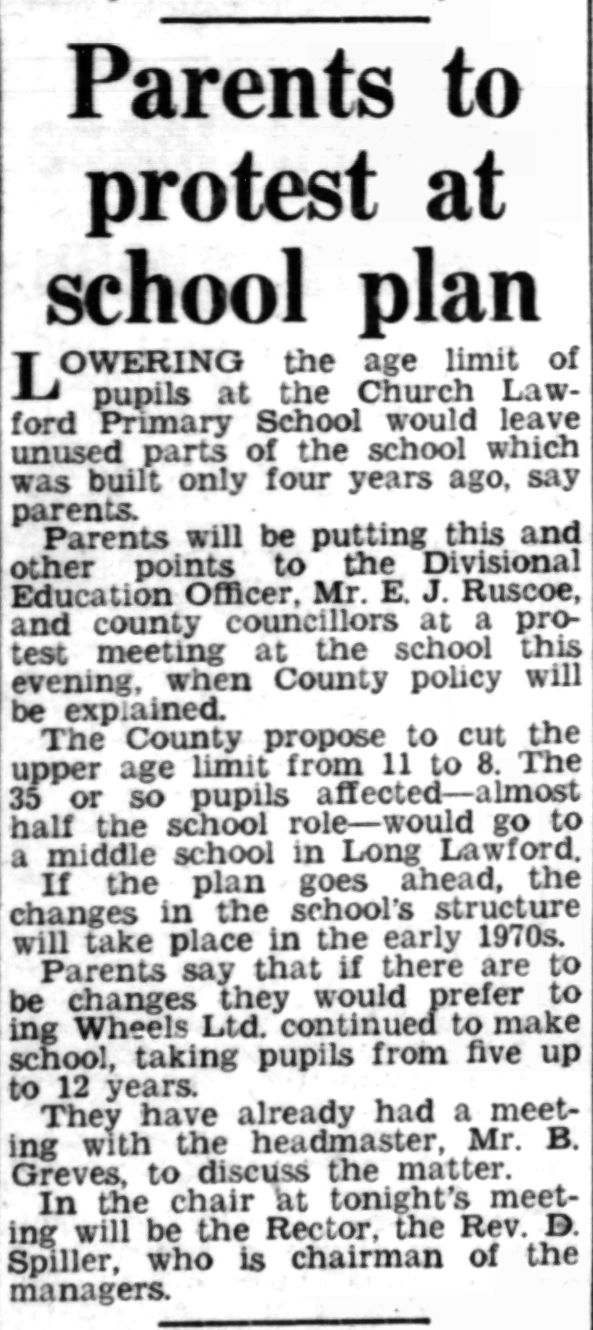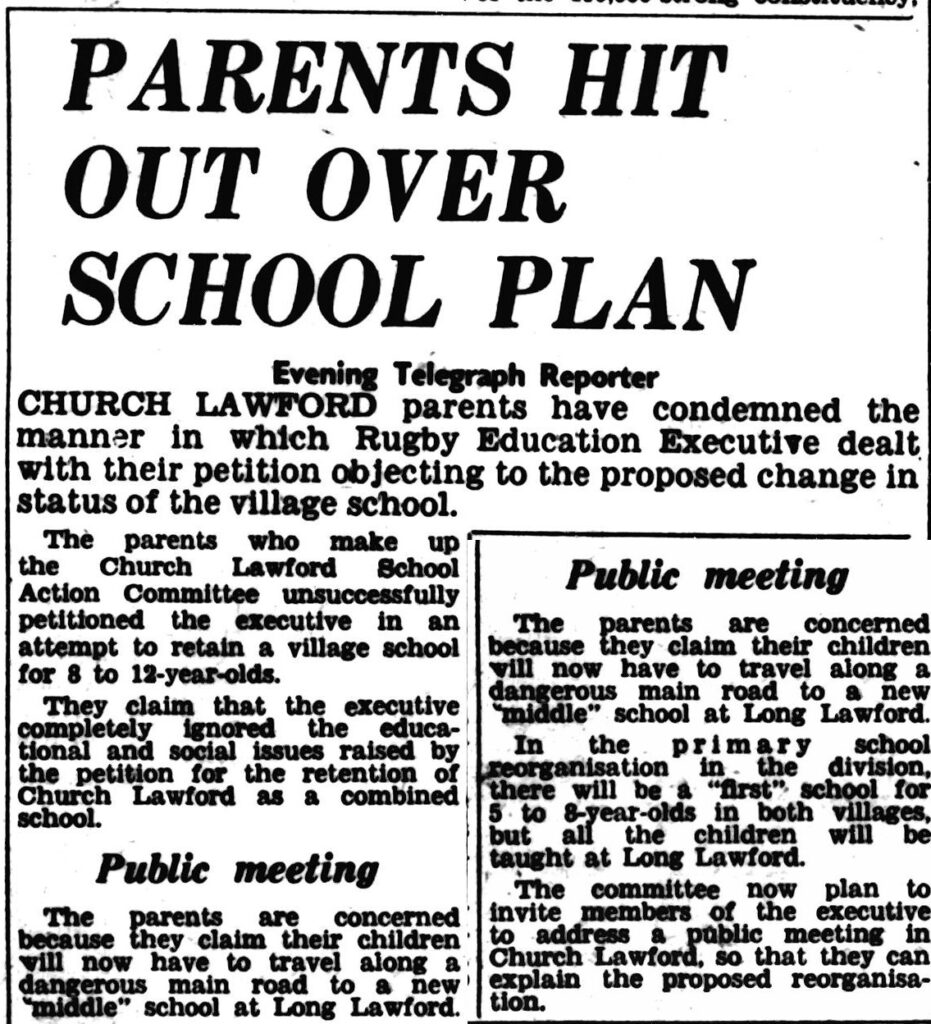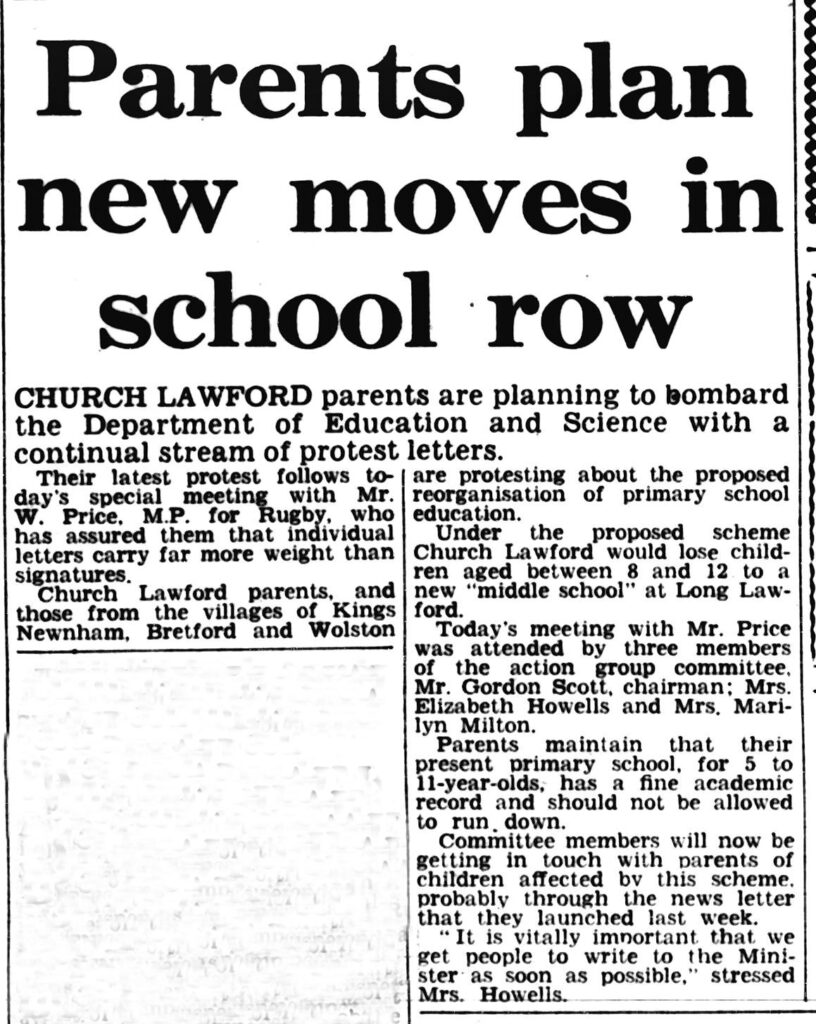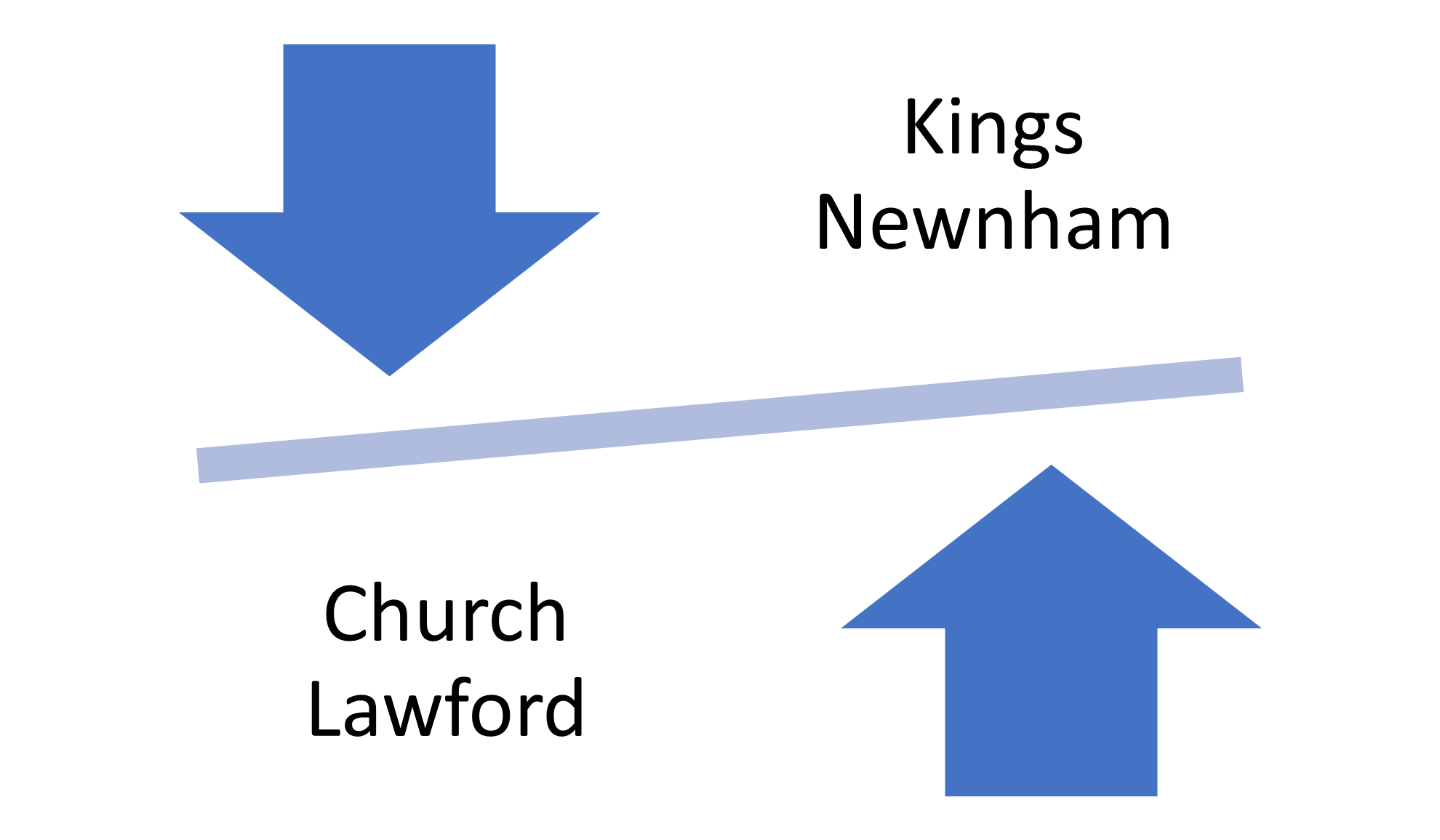After the possibility of Church Lawford and Kings Newnham C of E Junior and Infants school being restructured was mooted in 1968, the plans were formalised at the start of the 1970’s and so the villages began to try and preserve the existing status. A hard-fought campaign was ultimately defeated, but the various press articles of the day illustrate the events of that period.
The new school was also on School Street, just a hundred yards or so further down the street, opposite the Village Green, in an area formerly part of Fir Tree farm, and it also was next to the village reading room. It was a junior and infants school, originally operating with three classes, and quickly built up a good reputation, such that some children from Bretford, Wolston and Long Lawford also attended the school for their entire primary education. The infants class taught children in their first three years of schooling. Class 2 was for the next two years, and then Class 1 was for two further years leading up to the “Eleven-Plus” exam. Children would then move into secondary education, either at one of the schools in Rugby, or the Secondary Modern school in Wolston. The possibility of downgrading the school to First School status was first mooted in 1968 – just four years after the school opened. This article was published in the Coventry Evening Telegraph in that year.


By 1971 the campaign to stop the school intake being reduced so drastically had taken shape, with a petition raised accordingly, but a decision had been made in favour of that change, and plans were put in place,
It was widely predicted that the reduction of the headcount in the village school by 50% would be the “beginning of the end” for the Village School, and thus have such an impact on the vitality of the village.
By 1973 all avenues of appeal had been exhausted and the change was put in place, with Church Lawford School being reduced to First School Status, even though there were further concerns about transport provision.
Those predictions, of course, unfortunately came true before the end of the century.
.

